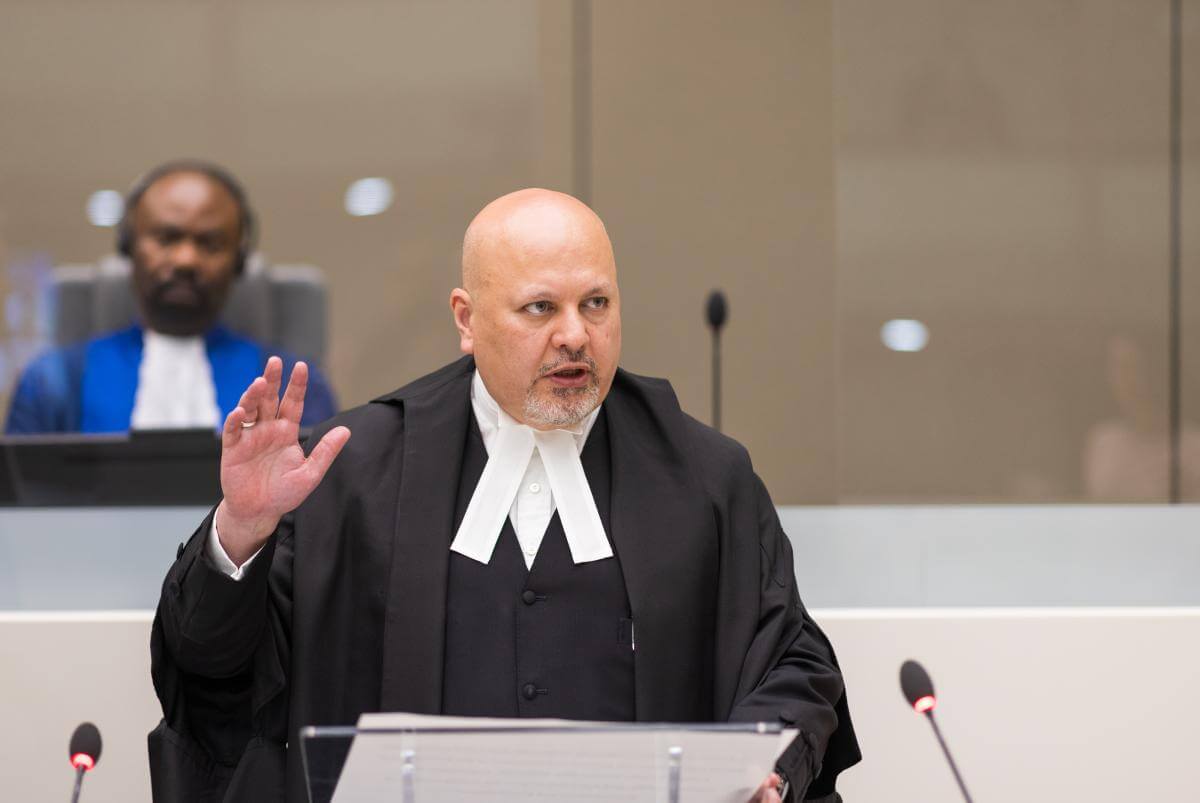The International Criminal Court’s (ICC) chief prosecutor, Karim Khan, on Wednesday told the UN Security Council (UNSC) that the Court has submitted applications to independent judges to issue arrest warrants for those responsible for committing war crimes in Libya.
Khan said the arrest warrants are based on the results of months of investigations by the ICC. He noted that the investigation focused on “four key lines of inquiry,” namely the violence committed in 2011 following the killing of Libyan dictator Muammar Gaddafi, crimes in detention centres, crimes committed during the conflict from 2014 to 2020, and crimes against migrants.
According to the report, the Court has collected “credible and extensive information” that violence was committed against demonstrators and opponents of the Gaddafi regime in 2011. It said the regime’s security officials committed “large-scale crimes” in detention centres, including murder, torture, and rape.
📺 Watch: #ICC Prosecutor #KarimAAKhanKC addresses @UN Security Council from Tripoli on the situation in #Libya ⬇️https://t.co/OG0DEoydjz
— Int'l Criminal Court (@IntlCrimCourt) November 9, 2022
The document also accused groups associated with rebel leader Khalifa Haftar’s Libyan National Army (LNA) of committing grave human rights abuses during the second Libyan civil war from 2014 to 2020. The report provides a list of crimes by LNA-affiliated forces, including extrajudicial killings, abductions, enforced disappearances, sexual violence, use of mines, and destruction of property.
It revealed that these crimes were committed in different parts of Libya and included mass killings. Khan, who is in Libya as part of the investigation, said around 230 bodies have been unearthed from graves in the city of Tarhuna alone. “The Office is in possession of video and audio material in relation to a number of these incidents,” the report said.
The ICC has also obtained witness statements, satellite imagery, and open-source material that provide further clues regarding the scale of atrocities committed during the second civil war.
🇱🇾 UNSC Briefing on Libya by the ICC Prosecutor.
— GhanaUN (@ghanamissionun) November 9, 2022
➡️ICC Prosecutor to carry out its mandate.
➡️Importance of witness protection.@HaroldAgyeman @OppongNtiri @GhanaMFA @UNinGhana #GUNSC pic.twitter.com/wTjKX5gFf2
Furthermore, the report details large-scale abuse of refugees and migrants by traffickers and militants since 2011. It said that “crimes against migrants in Libya may constitute crimes against humanity and war crimes.” In this respect, the ICC vowed “to ensure that those responsible for such crimes are held accountable.”
The Court acknowledged, however, that while the investigating team has made “significant progress,” they still face challenges. “Ongoing security issues and the threat of new waves of violence present a continued challenge, which the Office has sought to address through cooperation with Libyan national authorities and United Nations partners,” it said.
Prosecutors have expressed confidence that continued investigations will reveal additional evidence and claimed that the ICC is planning to issue further arrest warrants.
Thank you @KarimKhanQC for presenting the 2⃣4⃣th report on #Libya
— NorwayUN (@NorwayUN) November 9, 2022
🇲🇽🇦🇱🇬🇭🇬🇦🇨🇭🇮🇪🇬🇧🇪🇨🇯🇵🇲🇹🇧🇷🇫🇷🇳🇴 fully support #ICC in carrying out its important mandate, ensuring justice for victims of the most serious crimes under international law.
Joint statement➡️https://t.co/iTvxDHezo6 pic.twitter.com/Ic9MqqEYaE
Khan, who addressed the UNSC via video conference from Libya, said the investigation would allow the ICC to bring those who committed crimes in Libya to task. He noted that the probe’s success would bring justice to victims and “assist in a wider hope for sustainable peace.”
The United States (US) has welcomed the report, saying that Washington will “continue to be a strong supporter of meaningful justice and accountability for victims of atrocities.” “We commend the efforts of the Court to investigate and prosecute those most responsible for the heinous atrocities committed against the Libyan people since February 2011,” the US’ mission to the UN said in a statement.
“Former senior officials of the Gaddafi regime such as Saif al-Islam Gaddafi, who is still subject to an ICC arrest warrant on charges of crimes against humanity and war crimes, must face justice,” the statement stressed. Saif, the son of Muammar Gaddafi, is wanted by the ICC for committing war crimes during the 2011 uprising.
The Chief Prosecutor of the International Criminal Court (ICC), Karim Khan, has met in #Libya, in Benghazi, with Field Marshal Khalifa Haftar, who is credibly accused of multiple war crimes. https://t.co/Q1Y8KHt6rI pic.twitter.com/SFTQrbf4Eo
— Kyle Orton (@KyleWOrton) November 9, 2022
“The ICC plays a crucial role in our shared commitment to accountability, peace, and security. We support its effort to help bring justice to the people of Libya,” the US said.
Current members of the UNSC Albania, Brazil, Gabon, Ghana, France, Ireland, Mexico, Norway, and the United Kingdom and incoming members Ecuador, Japan, Malta, and Switzerland also issued a joint statement supporting the ICC’s investigation.
“We welcome that concrete action has been taken in cooperation with relevant national authorities leading to an acceleration of evidence-collection, the arrest of suspects and a significant deepening of engagement with affected communities, victims, survival groups, and civil society organisations,” the statement said. “We reconfirm our unwavering support for the Court as an independent and impartial judicial institution of last resort.”
Following the death of Muammar Gaddafi in 2011, Libya descended into a state of anarchy, with rival armed factions violently competing for control of the country. The violence initially led to an eight-month-long war in 2011 between Gaddafi loyalists and rebel groups that resulted in a comprehensive victory for anti-Gaddafi forces. Three years later, rivalries among the rebels led to another civil war fought over six years. Both wars have killed and displaced thousands.

